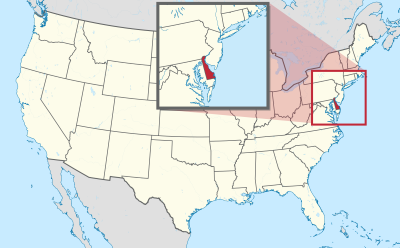Here you’ll find the largest list with Delaware hosting reviews. We’ve listed all Delaware web hosting providers with our UNCENSORED review and that of users.

Quick Facts
Internet Speed: 15 Mbps downlink; 8.9 Mbps uplink
Population: 950,000
Internet Coverage: 75% of residents
Main Internet Services: Cable, DSL, Fiber
Main Internet Service Providers: Xfinity, Verizon
Colocation Datacenters: 5 (prominent companies: Raynet Systems, Level 3 Communications, Trijit Corporation)
Internet in Delaware
According to Akamai.com, the average Internet downlink speed is 15 Mbps and the average uplink speed is 8.9 Mbps.
In 2016, the population of Delaware was 950,000. Over 75% of residents have access to the Internet, especially broadband connections.
The main Internet services provided in Delaware are as follows:
– Cable – over 90% coverage
– DSL – over 60% coverage
– Fiber – less than 10% coverage
The main Internet Service Providers located in Delaware are the following:
– Xfinity (Cable) – over 90% availability
– Verizon (DSL) – over 73% availability
– FIOS by Verizon (Fiber) – less than 10% availability
Gigabit Internet in Delaware
Gigabit Internet services are not currently available in Delaware. Highest speeds usually do not exceed 500 Mbps, and are available in select Delawarean cities, such as Wilmington, Newark, Dover, and New Castle. Google Fiber has recently shown interest in adding Delaware to their business portfolio, but has yet to provide any concrete details in this matter.
Colocation Datacenters in Delaware
According to datacentermap.com, there are currently 5 colocation datacenters located in Delaware. Most datacenters are located in Wilmington (4), followed by Newark (1).
In Wilmington, major colocation providers include the following:
– Raynet Systems
– Level 3 Communications
– Trijit Corporation
– IPR
Prominent Colocation Providers & Datacenters
One of the biggest colocation providers located in Delaware is Raynet Systems. They own many small datacenters distributed across Delaware and other surrounding states. Their biggest Delaware-based datacenter is located 10 miles from downtown Willmington, and specializes in providing wholesale and retail colocation services, in addition to other backup solutions. It is one of the most interconnected datacenters in Delaware, with on-site access to over 5 telecommunications providers and other colocation providers, such as Xfinity and Verizon.
Another important colocation provider located in Wilmington is Level 3 Communications. Their main 15,000-square-foot facility provides 1,228 square feet of colocation space, for wholesale and retail purposes alike. The facility features N+1 HVAC configuration, temperature and humidity control systems, in addition to a wide array of primary and secondary diesel generators for redundancy purposes. The datacenter also provides carrier neutrality and diverse fiber connectivity, with access to well over 7 telecommunications providers and other colocation providers.
Both companies cater mostly to a local clientele, but customers coming from emerging markets are not a rare occurrence either.
Colocation Market in Delaware
Delaware is currently regarded as an undeserved market, and current trends indicate that this situation might remain the same due to many irreconciliable disadvantages that this state has over other surrounding markets.
Disadvantages for Colocation
Disadvantages include:
– Small population: with under 1 million inhabitants, most of them being rather unpreoccupied about the Internet, the colocation industry cannot flourish
– High risk for natural disasters: floods, tornadoes, storms happen often in Delaware. Southern Delaware is particularly problematic, as it’s bombarded constantly with floods which lead to massive destructions
– Underdeveloped Internet infrastructure: in most Delawarean areas, the Internet infrastructure lacks proper technology or misses altogether. With the exception of certain select areas, Internet speeds usually do not exceed 100 Mbps.
Advantages for Colocation
The only readily apparent advantage of the local market is the state’s close proximity to other top markets, such as New York, New Jersey, and Virginia. Customers looking for close alternatives to these markets can opt for Delaware.
Economy
The local economy revolves mostly around agriculture, in addition to other industries, such as banking, healthcare, and education. Demand for colocation is mostly driven by these fields.

